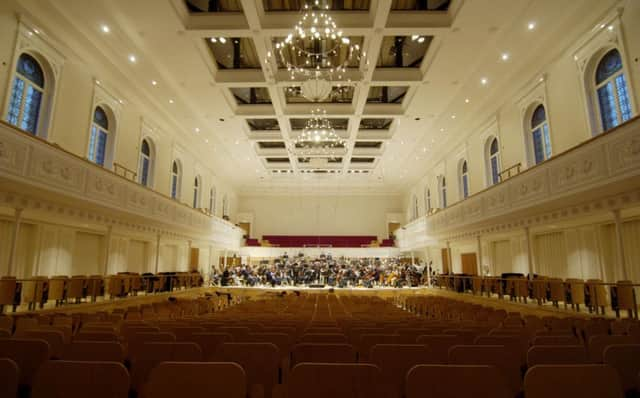Classical review: SCO, City Halls, Glasgow


SCO | City Halls, Glasgow | Rating ****
This was partly down to an inspirational programme of Brahms and Berg, in which the SCO was directed by Robin Ticciati; but equally it was the result of the astonishing detail and fresh thought that went into every one of the performances.
Brahms provided the framework: at one end, the expansive Tragic Overture – effectively a single-movement symphony – at the other, the elegantly-shaped Third Symphony, surely his most exquisite and emotionally rounded.
Advertisement
Hide AdAdvertisement
Hide AdTicciati gave each a life-giving injection. His reading of the overture was crisp and dramatic, from the electrifying opening chords, to the cut and thrust of the main action, every moment, every detail delivered with visceral definition and arresting raison-d’être. Again, in the symphony, textural touches made all the difference, such as the timpanist’s use of hard sticks, and Ticciati’s micro-control of the shifting colours, coupled with tempi that amplified the sturdy lyricism of the opening Allegro, the leisurely swagger of the Andante, the famous rapt melody of the Allegretto, and the quiet resolution of the Finale. Occasional woodwind imprecisions aside, the SCO were on cracking form.
Between these, soprano Dorothea Röschmann brought poetic poise and a rich expressive glow to Berg’s Seven Early Songs, at her radiant best in Die Nachtigall, but oddly constrained in the songs leading up to that central moment.